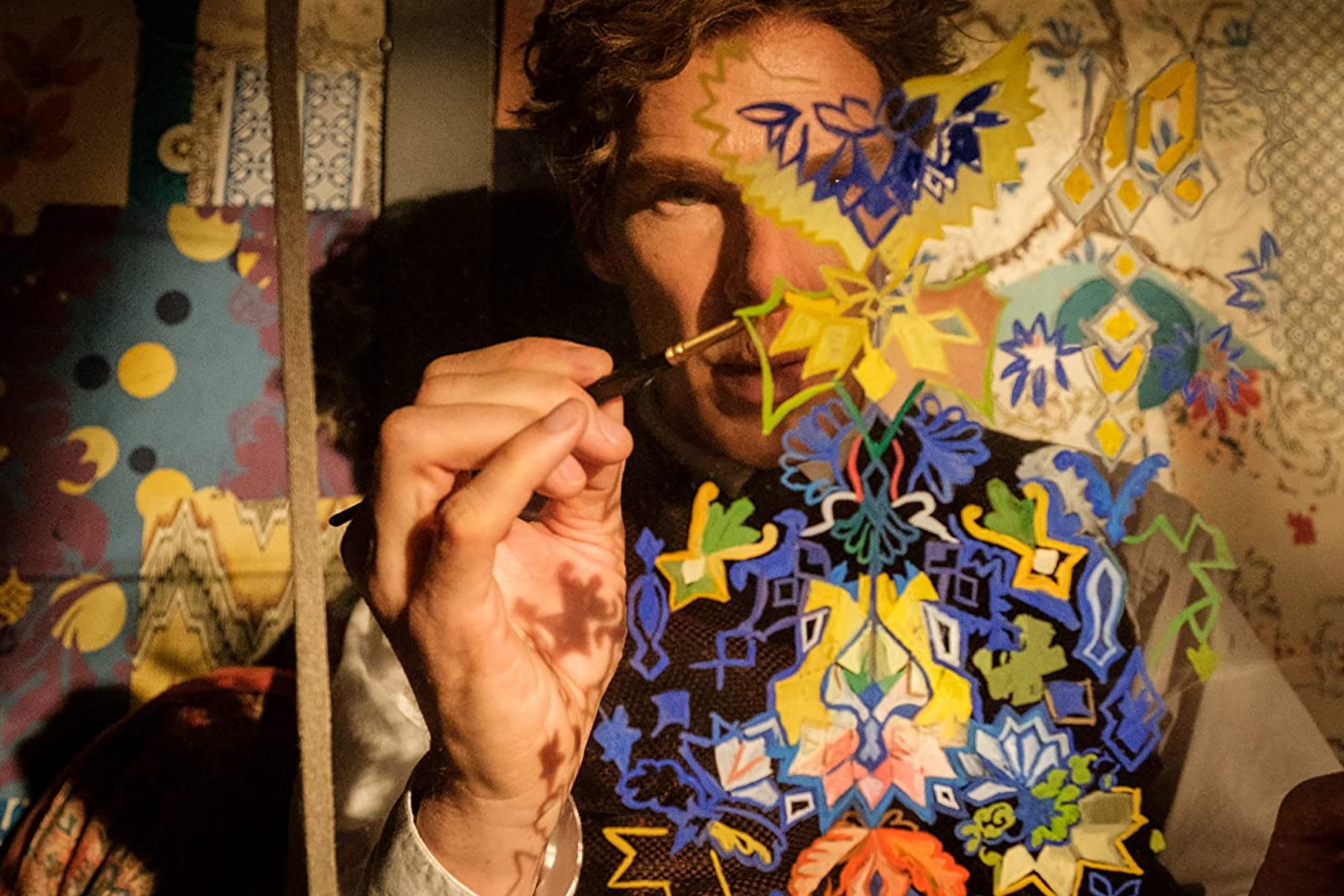
- Festivals
2021 TIFF Notes: Benedict Cumberbatch on “The Electrical Life of Louis Wain” (2021)
Benedict Cumberbatch is pulling double duty at TIFF. Already the talk of Venice with The Power of The Dog – (co-starring Kirsten Dunst and Jess Plemons) which won the Best Director award for Jane Campion. The bashful Brit adds to the former triumph with The Electrical Life of Louis Wain. Claire Foy co-stars in this whimsical biography of Wain, the English artist and illustrator who was hopelessly unsuited to the real world. As do many movies in the Covid era, this one deals with mental anguish, mourning and the manipulation of the artist. That the film is based on a real person, makes it all the more resonant.
The former Sherlock star was attracted by the “gentle hero,” (Wain) in a world that buffeted him around.” The actor told festival press “His perception of reality was not in sync with what the reality really was. I fell in love with the character basically. I found a great well of tenderness towards this human being and tried to humanize the more extraordinary parts of him. I felt very moved by him and his plight.” The film is directed by Will Sharpe. “His pitch won us over immediately.” Notes the thrice Golden Globe-nominee. “I was already a big fan of his. We had worked together on an episode of Sherlock. As a director, he is just a sublime collaborator, a friend and inspiration.”
A challenge in portraying Louis Wain is the controversy of the schizophrenia with which he was diagnosed at the time, which has since been called into question. Some suggest the artist who came to great acclaim drawing cats and is credited with the flourishing of cats as house pets, may have had a form of Asperger’s or may have been bi-polar. Cumberbatch frames the state differently. “I think I was in harmony with the idea of what Claire so beautifully delivers as his love, that his purpose – where he found himself, was to be a prism through which the beauty that he witnessed in the world would be reflected, and (his quest) was to give that joy back to the world. That, then tied in with all sorts of aspects of his personality, the mania of production, the sort of hyperactivity, as well as the depression and the despair of a man who was kind of adrift of his bedrock of solidity in an uneasy world, and in an unfamiliar world which became more so.” In this respect, the film brings to mind Kristen Stewart’s Spencer, which depicts the pressure of society to comply. Wain was comfortable in his choices, but society deemed them ‘other’. Continues Cumberbatch, “He fell in love with a woman who was outside his social class, who was ten years older than him, he was ostracized by his family and by society. But he chose love, he chose cats, who were (perceived as) only one level above the vermin they were catching, and domesticated them, historically that is his importance.”
“The anthropomorphic nature of his drawings was a wonderful window and prism into his own state of mind, his own humanity, as well as what he saw in all of us. His drawings are full of affection, joy, satire, pain, humor and wit. It felt overly prescriptive to just say, ‘Oh it’s schizophrenia, oh it’s depression, oh it’s anxiety or some kind of disorder. The whole thing about the Victorian era for me is that it is rigid. You are defined, you cannot change lanes, it’s what you are – your position, your class, your gender and your sexuality, all of it. And he sort of slightly defied all of that.”
As the film traverses decades. Much time was dedicated to capturing the different stages of aging in rehearsal. Cumberbatch laughs when talking of the challenge. “I watched this film with my dad in lockdown, as a producer, to give some notes and feedback in post, and he couldn’t speak afterward. I think he had seen his son age, which he will never live to see, and he’d seen the story of Louis Wain, which he’d found profoundly moving. He’d seen a lot of himself. And that was quite an extraordinary thing to realize that I’d obviously absorbed a lot of who he is now, and has been, through my life.” “So yes, on aging, dad helped.”
There’s the old Hollywood adage: don’t work with children or animals. On the topic of cats, the father of three does not mince words. “F***ing cats.” He jokes. “Let me tell you about cats, right? Okay, so kittens are great, balls of string, wool, does what it says on the tin, they’ll lick from saucers of milk. Older cats don’t do shit. (laughter) When they are on set, there’s this ludicrous reverence for them that’s never there for the actors. (laughter) Okay, the cat’s coming on set, can we all be quiet? What the f**k?!” He laughs again in delight at the exaggeration. “Why is there never quiet for me? Why don’t I get snacks after I’ve done a good take? Carried around in a little basket and stroked?
I’d love that. However, when they are there, in all seriousness, it’s like children. They’re so alive, it’s like fire, it’s like something that brings you immediately focused into the present tense, it’s something for nothing. You have such an immediacy with animals, and it really, really helps bring that magic to bear in that one split cinematic moment.